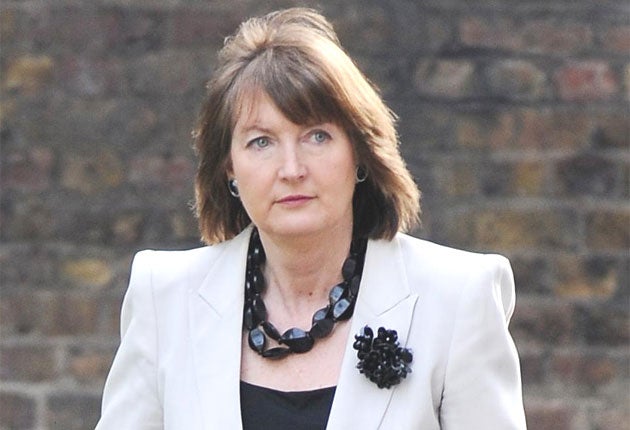Scramble to save Bills at end of parliament
Plan to raise duty on cider among measures now under threat

Moves to stage a referendum on scrapping the first-past-the-post electoral system have been abandoned as the parties wrangle over legislation to be rushed into law ahead of the general election. The Government has also dropped proposals to phase out the right of hereditary peers to sit in the House of Lords.
With Parliament due to be dissolved next Monday, the plans fell victim to the squeeze on Commons time. Both moves were strongly opposed by the Conservatives and would have struggled to get through the Lords. Labour will now put the proposed reforms in its general election manifesto and campaign on them over the next month. Party chiefs were last night negotiating over which Bills would get a fair wind over the next two days and make it on to the statute book. With up to eight Bills in limbo, the Commons and Lords could be forced to sit until midnight today and tomorrow.
Bizarrely, plans to increase the duty on high-strength cider, announced in last month's Budget, formed part of the discussions. Last night the Tories claimed victory, saying they had forced the Government to scrap the increase from 30 June. They also said ministers had climbed down over plans for a 50p a month "broadband tax" on telephone bills and to scrap tax relief on furnished holiday lettings.
Philip Hammond, shadow Chief Secretary to the Treasury, said: "This is a major victory for businesses and consumers across Britain. But the threat couldn't be clearer – if Labour is re-elected, all three taxes will come back. Only a Conservative Government will stop Labour's tax increases."
The Government yesterday said it had given up hope of pressing ahead with measures to hold a referendum on whether to move from "first-past-the-post" to the "alternative vote" system under which voters list candidates in their order of preference. Tory frontbenchers in the Lords had criticised the plans, set out in the Constitutional Reform and Governance Bill.
Legislation to drive down the fees charged by "no-win no-fee" lawyers in defamation cases, from 100 per cent to 10 per cent, has also been shelved. The proposals suffered a small Labour rebellion as four of its MPs joined opposition parties on a House of Commons committee in voting against the Government. They feared that the cut in fees would deter lawyers from taking the cases in the first place.
A key reform for modernising the workings of the Commons has also been put on ice until after the next election. Proposals to set up a backbench business committee to give all the parties an input into the Commons timetable will not proceed, the deputy Labour leader Harriet Harman said.
But the Government maintained it was determined to get its controversial Digital Economy Bill, under which persistent illegal downloaders and file-sharers would be cut off, on to the statute book.
It is opposed by the Liberal Democrats who believe some of the measures are too draconian and that it has not been sufficiently debated.
Join our commenting forum
Join thought-provoking conversations, follow other Independent readers and see their replies
Comments
Bookmark popover
Removed from bookmarks